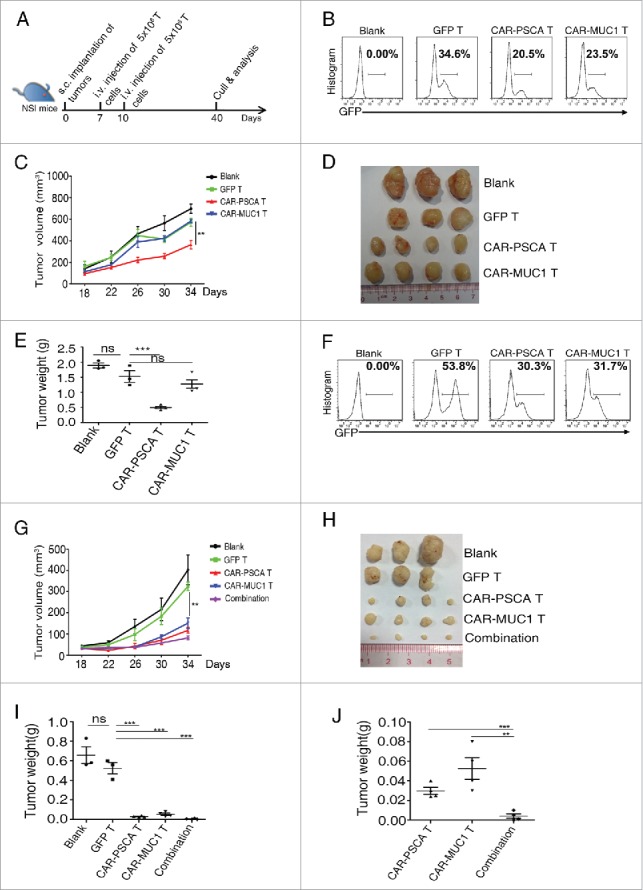Figure 5.

Prostate stem cell antigen chimeric antigen receptor (CAR-PSCA) expressing T cells inhibit the growth of non-small-cell lung cancer (NSCLC) and exhibit synergistic efficacy with mucin 1 CAR (CAR-MUC1) expressing T cells against NSCLC in patient-derived xenograft (PDX) models. (A) Diagram of the experiment with primary NSCLC tumors from patient P2 or P8 in NSI mice. Mice were inoculated subcutaneously with dissected tumor masses from patient P2 or P8 (2 mm × 2 mm), infused with 5 × 106 total T cells on days 7 and 10, and culled on day 40 for tumor analysis. (B–E) Results from the PDX model of patient P2. (B) T cells were analyzed for transfection efficiency before infusion into PDX mice of patient P2. (C) Tumor growth curves in groups treated with no T (n = 3), GFP T (n = 3), CAR-PSCA T (n = 4) or CAR-MUC1 T (n = 4) cells. (D) Tumors from mice treated with no T, GFP T, CAR-PSCA T or CAR-MUC1 T cells on day 40 are shown. One mouse from both the no T and GFP T groups died when tumors were small, which was not shown. (E) Comparison of the weights of tumors described in D. (F, J) Results from the PDX model of patient P8. (F) T cells were analyzed for transfection efficiency before infusion into PDX mice of patient P8. (G) Tumor growth curves in groups treated with no T (n = 3), GFP T (n = 3), CAR-PSCA T (n = 4), CAR-MUC1 T (n = 4), and combinatorial CAR T cells (n = 4). (H) Tumors from different groups in (G) on day 40 were shown. Also, both the no T and GFP T groups had one mouse died when tumors were small. (I) Comparison of the weights of tumors in H. (J) Tumors from CAR-PSCA T, CAR-MUC1 T and combinatorial groups were singled out for comparison. Error bars denote standard errors of the means, and groups were compared using the unpaired t-test. *p < 0.05, **p < 0.01, ***p < 0.001.
